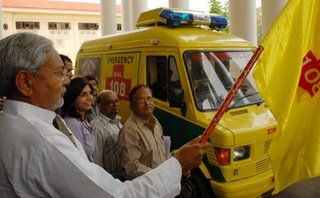I believe that a person’s world view is their perspective and it is this which infringes on how they approach people and places. Through this fellowship, I have met such a wide range of persons, not only within the fellowship, but also outside the fellowship via Acumen’s contacts in New York, and now in Delhi.
Often there are conversations about Delhi, debates about loving or hating the city or the age old comparison between Delhi and Mumbai. Where would one want to live? What can be done about Delhi’s pollution, overall dirtiness, beggars, cows in the street, etc? Where does one get a good glass of wine?
I sometimes tell people that Delhi is the best place I have ever lived overseas for amenities and activities. (I also believe it is a dynamic city in its own right.) Often I get a look or comment of disbelief. Yet when I begin to rattle off the other places I have lived (Jalalabad, Afghanistan; Akhaltsikhe, Georgia; Kokand, Uzbekistan; Ziway, Ethiopia, etc.) then they begin to nod their head.
What I find most interesting is the first gut reaction that people have to my statement. Delhi can’t possibly be the “best place”, as in their frame of reference it may be compared to NYC, London, or even their home town. Never the places I mention, which to be fair, most people haven’t heard of any way.
Perspective plays such a large role in how a person approaches living in and relating to people from another country. One hears various assessments of a country based on this perspective, opinions that range from being extremely open and accepting to downright ignorant and immature, in other cases.
This world view also seeps in to the work that we do. Are we still playing the age old game of Us vs. Them, Colonial vs. Native, or West vs. East? Observing another culture, whether in the workplace or outside, is one thing, but commenting in a non-constructive way begs the question…Isn’t it all just subjective? What is being said about this country and people can also be said about one’s own country and in the same tone and manner.
Is it possible to take one’s critical eye and turn it in on oneself and one’s own country or can it only be done when a person moves to another place and then all bets are off? At that point, everything can be reviewed, assessed and critiqued.
For those that have a narrow perspective, I hope that when they return to their countries they use new eyes and new perspectives to view their own homes in such a light and work towards the same improvements that they may wish upon their current hosts.
Perspective can make the world one way or the other, good or bad. For myself I strive to continue to widen mine, as through that I learn new ways of approaching life itself and that, to me, is priceless.


